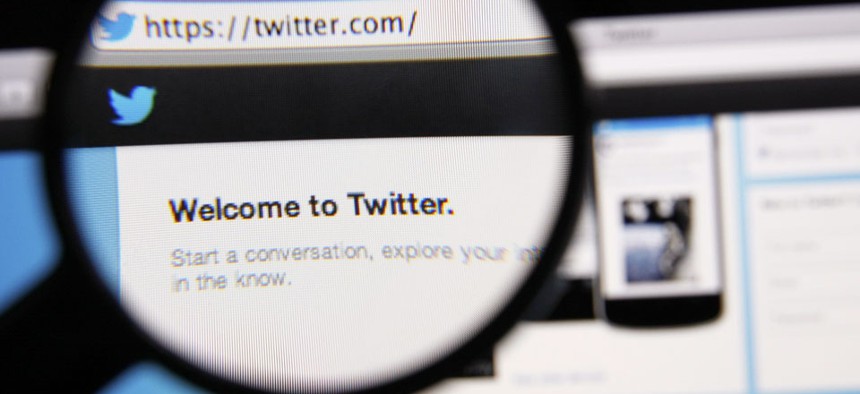US Government Requests for Information on Twitter Users Spike

Gil C/Shutterstock.com
Most of the time, the publishing platform gave officials what they wanted.
The U.S. government made twice as many requests for Twitter user information in the last half of 2014 compared with the year before, according to a detailed report out from Twitter this week.
And usually—about 80 percent of the time—Twitter gives officials in the United States what they want. That information might include direct messages, a user's location, IP address, and even deleted tweets. Mostly, government officials are asking for information as part of a subpoena or search warrant (and less often a court order). Twitter has been releasing details about such requests twice a year since 2012 in an effort to promote transparency.
The latest report shows the United States made 1,622 requests for information between July and December of last year, Twitter said. That's compared with 833 such requests over the same period the year before. The requests also affect more than twice as many Twitter accounts—3,299 in late 2014 compared with 1,323 in late 2013.
The states where most requests—at least 100 apiece—originated late last year: Texas, California, Illinois, Virginia, New York, and New Jersey. On the other side of the spectrum, officials in Hawaii, Montana, Rhode Island, North Dakota, South Dakota, and Vermont made zero requests.
And while the United States by far led global governments in volume of requests—more than half of requests came from the U.S.—officials everywhere are asking for Twitter for more. There were notable increases in requests from Turkey (356) and Russia (108), though Twitter didn't comply with any of the requests from governments in those countries, it said. The company says the overall uptick represents about a 40 percent increase in requests for account information worldwide compared with the first six months of 2014.
And it's unlikely that Twitter users were notified when their personal information went to law enforcement. Users were notified of such requests just 11 percent of the time in the latest reporting period, according to Twitter. Though Twitter says in its user guidelines that it's their "policy to notify users of requests for their account information" that's only "unless we are prohibited from doing so." Twitter reports about half of requests late last year were sealed by courts, so users weren't notified. But 40 percent of the time, it said, requests weren't sealed and no notice was provided anyway. In those cases, requests may have yielded no information (meaning law enforcement never got anything), or Twitter was following local laws that prevented disclosure to users, the company said.
Google and Facebook report similar increases in government requests for user information. At Facebook, officials in the United States requested information about nearly 40,000 accounts in 2013—the most recent full year for which data is available—and Facebook complied with requests about 80 percent of the time.
All of this is a reminder of one of the core principles of modern communication: that nothing is private on the Internet. But it also raises a question about the real nature of the privacy threat. Law enforcement requests are only part of the picture. The NSA, for instance, has used Facebook in its plans to hack computers on a mass scale, according to The Intercept. As Facebook founder Mark Zuckerberg put it in a blog post last year: "This is why I've been so confused and frustrated by the repeated reports of the behavior of the U.S. government. When our engineers work tirelessly to improve security, we imagine we're protecting you against criminals, not our own government."
As for the kinds of requests in the recent Twitter report, the ACLU has argued that many of them represent overly broad "fishing expeditions" that skirt judicial process and ultimately hurt people's fundamental rights. "As Americans, we should be free to express ourselves online without fearing that our personal information and communications will end up in government hands—unless law enforcement obtains a probable cause warrant," the ACLU wrote in a blog post. "Government surveillance of what we say—whether or not we say it in public—can have a chilling effect on speech."
(Image via Gil C/Shutterstock.com)
NEXT STORY: Why ‘Facebook at Work’ Might Work





